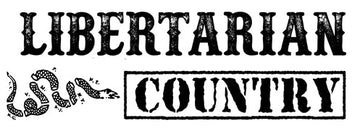The Narrative of Helplessness
One of the defining features of progressive thinking is the insistence that ordinary people are fundamentally helpless without the guiding hand of government. When it comes to health, that narrative plays out over and over:
-
“The poor can’t afford healthy food.”
-
“They don’t have the time to cook.”
-
“They aren’t educated enough to know what’s healthy.”
It’s a drumbeat of can’t, can’t, can’t — a worldview where people are perpetual victims of forces too large to overcome. This isn’t accidental. It reinforces the political argument that only new programs, subsidies, and regulations can fix the problem. If individuals are seen as capable of making different choices, the whole dependency framework begins to crumble.
But the facts show otherwise. The cheapest foods in any store are the very foods public health experts recommend: rice, beans, oats, potatoes, carrots, bananas, etc. A pot of lentils can feed a family for pennies. Cooking in batches takes less time than commuting to a drive-thru. And the idea that people are too ignorant to understand that soda, candy, and chips aren’t healthy? That’s not compassion — that’s condescension.
The “helplessness” narrative isn’t just false; it’s corrosive. It robs people of dignity and agency by suggesting they are incapable of solving problems that, in reality, can be solved with discipline and small lifestyle changes. It’s easier to say “the system is stacked against you” than to admit that you have the power — and therefore the responsibility — to make better choices.
The Cost Excuse
Progressives claim poor people can’t afford healthy food. Yet in the same breath, they recommend eating more whole foods like legumes, oats, grains, rice, tubers, bananas, and lentils. Here’s the contradiction: these are the cheapest, most accessible foods on the planet.
-
Price check: Dry beans cost $1–2 per pound and yield several meals. A 10 lb. bag of potatoes can run under $5. Bananas can cost as little as 25¢ each. Oats and rice are some of the lowest-cost staples in any store.
-
Nutrition check: These foods are loaded with protein, fiber, iron, potassium, magnesium, and complex carbs — far more nutrition per dollar than processed junk.
Healthy food isn’t expensive. Junk food is aggressively marketed and convenient, but the economics prove that poor people can eat healthy on a budget.
The Time Excuse
Another common claim: poor people work two jobs and don’t have time to cook. But cooking doesn’t have to mean gourmet meals with a dozen ingredients.
-
Batch cooking works. A single pot of soup, chili, or beans and rice takes less than an hour and feeds a family for days.
-
Hands-off methods exist. Crockpots, Instant Pots, and even a pot on the stove do most of the work without constant attention.
-
Reality check: Americans spend hours per day watching TV or scrolling on social media. Time is not the issue — priorities are.
The “no time” excuse is really a matter of misplaced values, not actual scarcity of hours.
The Education Excuse
Progressives also argue that poor people are uneducated about nutrition. This is one of the most insulting claims of all.
-
Free resources abound. Countless nutrition apps, free websites, and government guidelines are available to anyone with a smartphone.
-
Libraries and schools exist. Even the very government guidelines progressives endorse are ignored when inconvenient.
-
Common sense isn’t rare. People know soda, chips, and fast food aren’t health foods. Pretending otherwise demeans people’s intelligence.
The idea that the poor are too ignorant to eat well is both condescending and false.
The Selective Empathy Problem
If progressives really cared about health, they would also care about the millions of middle-class and upper-middle-class people who suffer from obesity and related diseases. After all, these people do have the money, time, and education to eat healthy. But progressives don’t emphasize that problem, because it doesn’t fit their political narrative.
This reveals the deeper motive: it’s not about health, it’s about control. Keeping people unhealthy, dependent, and framed as victims fuels the case for more government intervention — even though many of the subsidies they defend distort the food system in the first place.
Sidebar: Obesity Isn’t Just About Poverty
Progressives love to frame obesity as a poverty issue, but the data tells a different story:
-
Overall obesity rate (U.S. adults): 41.9% (CDC, 2017–2025)
-
By income: Obesity rates are high across all income levels. In fact, adults making $100,000+ still have an obesity rate over 30%.
-
By education: Education is a stronger predictor than income. Adults without a college degree have obesity rates around 44%, while those with a bachelor’s or higher are closer to 31%.
👉 Translation: Plenty of middle- and upper-class people with money, time, and access to information are still obese. This shows the crisis isn’t caused by poverty, but by lifestyle and choices. Diabetes, heart disease, and cancer are often considered diseases of affluence because countries that have abundant calories available demonstrate more of these diseases.
Capitalism affords us the luxury to fill up on junk food or to eat healthy and live great lives. It's up to us to decide, not the government or corporations.
A Positive Reality
Pointing out these contradictions may sound harsh, but it’s actually empowering. Yes, systemic pressures like food marketing, cultural habits, and subsidies exist — but they don’t determine your health. You do.
Healthy eating doesn’t require wealth, gourmet skills, or elite education. It requires discipline and responsibility. Anyone can buy beans, rice, oats, potatoes, bananas, and vegetables, batch cook them, and build strength and vitality.
And that’s the good news: if the problem isn’t entirely systemic, then the solution isn’t out of your reach. The power to live long, healthy, rewarding lives belongs to the individual. That’s freedom.
Be healthy, question everything, become a thought criminal today! 👇


